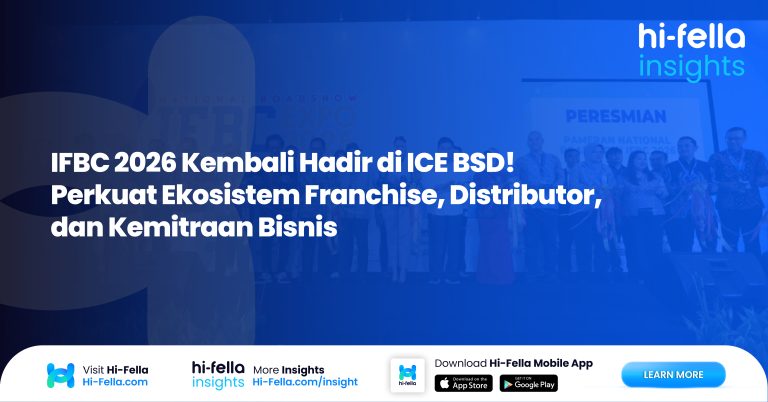Sukses dapat ditemukan di mana saja. Tidak perlu ke ibu kota yang penuh dengan hiruk-pikuk untuk mengais sukses. Di balik tenang dan damainya desa, terbentang peluang bisnis yang tak kalah menjanjikan. Banyak hal yang laku bila dijual di kampung asalkan kita mau mencari peluang. Dengan kemajuan teknologi, akses informasi yang mudah, dan keinginan untuk berbisnis, banyak peluang bisnis yang akan muncul dengan sendirinya. Temukan peluang usaha menarik di pedesaan dengan ide-ide kreatif yang kami sajikan. Potensi keuntungan menanti!
Produk yang dibutuhkan masyarakat desa berbeda-beda, tergantung pada kondisi masing-masing desa. Ada desa yang membutuhkan lebih banyak alat dan mesin untuk mengolah sumber daya alam mereka. Ada desa yang membutuhkan lebih banyak transportasi beserta perlengkapannya. Ada juga desa yang membutuhkan lebih banyak peralatan komunikasi juga perlengkapannya.
Hal ini tentu membuat masyarakat desa mempunyai tren mereka sendiri dalam berjualan. Kebutuhan yang berbeda-beda membuat mereka mempunyai kemampuan untuk berinovasi untuk memenuhi kebutuhan satu sama lain. Selain itu, banyak juga yang mencoba berinovasi menjual hasil desa mereka menjadi produk yang lebih bernilai jual. Tak jarang masyarakat desa menjual makanan, bahan jadi, pakaian, dan produk-produk lain yang unik dan menarik perhatian. Masyarakat desa cenderung menjual sesuatu yang menjadi keunggulan desa mereka, kemudian mereka berinovasi dengan produk tersebut. Mereka juga cenderung menjual produk yang tak bisa ditemukan di desa mereka, tetapi mereka membutuhkannya.
Ada satu contoh bisnis sukses di daerah pedesaan yang cukup terkenal yaitu usaha manisan carica di Dieng. Dieng sudah terkenal menjadi kawasan wisata. Oleh-oleh khas kawasan wisata menjadi daya tarik tersendiri bagi para wisatawan, termasuk manisan carica ini. Petani menghargai buah carica sebesar Rp1.750 per kilogramnya sehingga setiap minggunya petani dapat memperoleh pendapatan kotor kurang lebih Rp700.000 sampai Rp875.000.
Namun, jika buah carica itu diolah menjadi produk siap makan seperti manisan dan selai, harganya menjadi lebih mahal. Harga 6 pcs manisan carica sebesar Rp27.000 hingga Rp30.000 sementara harga selai carica per botolnya sebesar Rp20.000 hingga Rp25.000. Bayangkan bila setiap hari ada saja wisatawan yang datang ke Dieng untuk membeli manisan carica dan selai carica ini. Omzet yang diperoleh pun tidak main-main. Ini menandakan bahwa bisnis yang memanfaatkan sumber daya alam sekitar desa dapat berkembang dengan pesat dan mempunyai potensi.
Ide Jualan yang laku di kampung
Sekarang, yang menjadi pertanyaan adalah jualan apa yang laku di kampung? Melihat kebutuhan, tren, dan contoh bisnis di atas, peluang untuk menjadi pebisnis sukses di kawasan pedesaan sangatlah besar. Pada dasarnya, semua bisa diuangkan di desa, baik itu produk barang maupun jasa. Kuncinya satu, mau berinovasi. Jika kita rajin berinovasi, produk yang kita jual pun akan terlihat unggul. Orang-orang akan tertarik untuk membeli produk yang kita jual. Berikut ini adalah contoh lain peluang bisnis di kawasan pedesaan.
- SPBU mini
SPBU mini merupakan salah satu bisnis yang potensial dijalankan di desa karena bisnis ini dapat memudahkan warga desa mendapatkan bahan bakar untuk kendaraan mereka tanpa harus jauh-jauh ke kota. Pertamina menyediakan 3 skema bisnis berdasarkan modal untuk membuka bisnis Pertashop atau SPBU mini ini. Yang pertama adalah modal Rp250 juta, yang kedua Rp400 juta, dan yang ketiga Rp500 juta. Jika memilih jenis SPBU mini dengan modal Rp250 juta, keuntungan yang didapat adalah Rp850/liter untuk penjualan 1-1000 liter per hari dengan minimal 400 liter per hari. Jika per hari menjual 400 liter, keuntungan yang didapat adalah sebesar Rp340.000 per hari. Sebulan akan mendapatkan Rp10.200.000 jika dihitung kasar. - Penginapan
Bagi yang tinggal di desa dengan potensi wisata yang besar, membuka penginapan bisa jadi alternatif bisnis menguntungkan di desa. Wisatawan yang datang ke desa tersebut akan mencari penginapan untuk berlibur. Dengan modal sekitar Rp40 juta untuk membuat penginapan 7 kamar, kita bisa mematok harga sekitar Rp200.000 per kamarnya. Dengan begitu, pemasukan yang diperoleh per bulannya adalah sekitar Rp42 juta dengan catatan setiap hari kamar terisi penuh. Bila dikurangi dengan biaya operasional sekitar Rp12 juta, pendapatan per bulannya menjadi Rp30 juta. Cukup menjanjikan, bukan? - Jasa bimbingan belajar
Membuka jasa bimbingan belajar di desa merupakan salah satu bisnis yang juga menguntungkan karena anak-anak desa pasti membutuhkan bimbingan belajar agar mereka mendapat nilai bagus di sekolah. Modalnya pun terbilang kecil, hanya sebesar kurang lebih Rp5 juta. Dengan mematok harga Rp150.000 per anak per bulan dengan 8 kali pertemuan, jika ada 15 anak dalam satu kelas, kita bisa mendapatkan Rp2.250.000 dalam satu bulan. Dikurangkan dengan biaya pengeluaran per bulannya untuk listrik, fotokopi, membeli perlengkapan, dan lain-lain yang sebesar kurang lebih Rp750 ribu per bulan, kita sudah dapat pemasukan sebesar Rp1.500.000 per bulannya.
Setelah kita tahu produk apa yang cocok untuk dijual di kampung, ini saatnya kita melangkah ke langkah selanjutnya. Temukan bahan dan barang dagangan yang sesuai dengan peluang bisnis di desa di Hi-Fella, platform online tempat bertemunya para penjual, pembeli, pemasok, dan konsumen dari seluruh dunia. Hanya dengan mengunduh aplikasi Hi-Fella di App Store atau Play Store serta membuat akun, kita bisa memulai bisnis menjanjikan di desa tempat tinggal kita sendiri. Yuk, gabung sekarang!








